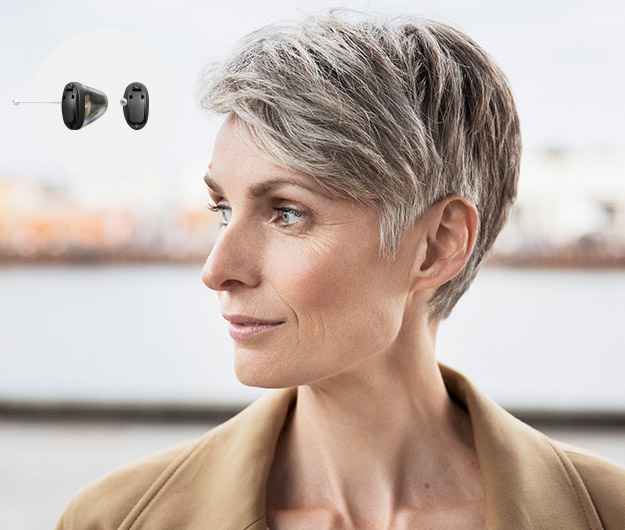Ask yourself: Do you need a hearing test?
Answer the four questions below to see if you should consider getting a hearing test.

What is most important in your life right now? Perhaps it's spending time with your friends and family, pursuing your hobbies and interests, or excelling in your career. Whatever it may be, better hearing can enhance your overall well-being and enable you to fully engage with the world around you.
Prefer Calling: 1-888-877-6795
Monday - Friday: 9am to 5pm EST
Mention code: EBL-MOTI-TNS

Answer the four questions below to see if you should consider getting a hearing test.
Your answers indicate that you experience symptoms of hearing loss. We strongly recommend booking a hearing test at one of our clinics.
The result is an indication. An in-person hearing test can determine if you have a hearing loss.
Your answers indicate that you experience some symptoms of hearing loss. We recommend booking a hearing test at one of our clinics.
The result is an indication. An in-person hearing test can determine if you have a hearing loss.
Your answers do not indicate that you experience symptoms of hearing loss. However, if you experience trouble hearing, we recommend booking a hearing test at one of our clinics.
The result is an indication. An in-person hearing test can determine if you have a hearing loss.
Since hearing loss occurs gradually, it may be difficult to notice when your hearing begins to decline. In many cases, friends and family may notice it before you do.
We recommend that you educate yourself about the signs and symptoms of hearing loss so that you can seek treatment and reap the benefits of better hearing. When you visit a local HearingLife clinic for an in-depth hearing evaluation, a hearing care professional will identify your level of hearing ability and recommend the most optimal treatment option for your hearing needs.
Take online hearing test Hearing loss types

The most common type of hearing loss is called sensorineural hearing loss, and it is mainly caused by the natural aging process and / or extensive exposure to loud sounds. It is important to understand the difference between sensorineural hearing loss and other types of hearing loss in order understand the best treatment options available.
| Signs of sensorineural hearing loss |
Signs of conductive hearing loss | Signs of sudden hearing loss |
| Difficulty following conversations involving more than two people | Speech and other sounds seem distant or muffled | Unexplained rapid loss of hearing |
| Difficulty following conversation when there’s background noise | Pain, pressure in or discharge from the ear | Loss of hearing all at once or over a couple of days |
| Difficulty understanding phone conversations | A feeling of “fullness” | It is almost always experienced in one ear only |
| Sounds seem unclear or people sound like they are mumbling | Decrease in the volume of the sounds (but the sounds are not distorted) | It can go away by itself, or be reversed by medical treatment |
| Difficulty hearing high-pitched sounds | Vertigo | |
| Ringing or buzzing in the ears, called tinnitus |
| Sudden hearing loss: Seek help immediately If you experience sudden hearing loss, you should seek medical attention immediately! It is more likely that you will regain some of your hearing back if you treat this type of hearing loss within the first 72 hours. |
Hearing loss can be categorized by severity level. Your level of hearing ability is measured in decibels (dB), referring to how loud sounds need to be for you to hear them.
Hearing loss levels

Fortunately, there is a wealth of hearing loss treatments available to suit all types of hearing loss needs.
The most likely and common treatment for hearing loss is wearing hearing aids. In some cases, a cochlear implant (CI) or bone-anchored hearing aid (BAHA) might be recommended. Surgery or other medical solutions may also be recommended in some cases.
Regardless of the best treatment option for you, the sooner you seek help, the better your outcome will be.
Book a FREE hearing test Hearing loss treatment

Today’s hearing aids are more technologically advanced and smaller than ever.
Some of them are practically invisible and, despite their small size, offer excellent sound quality - even in difficult listening situations.